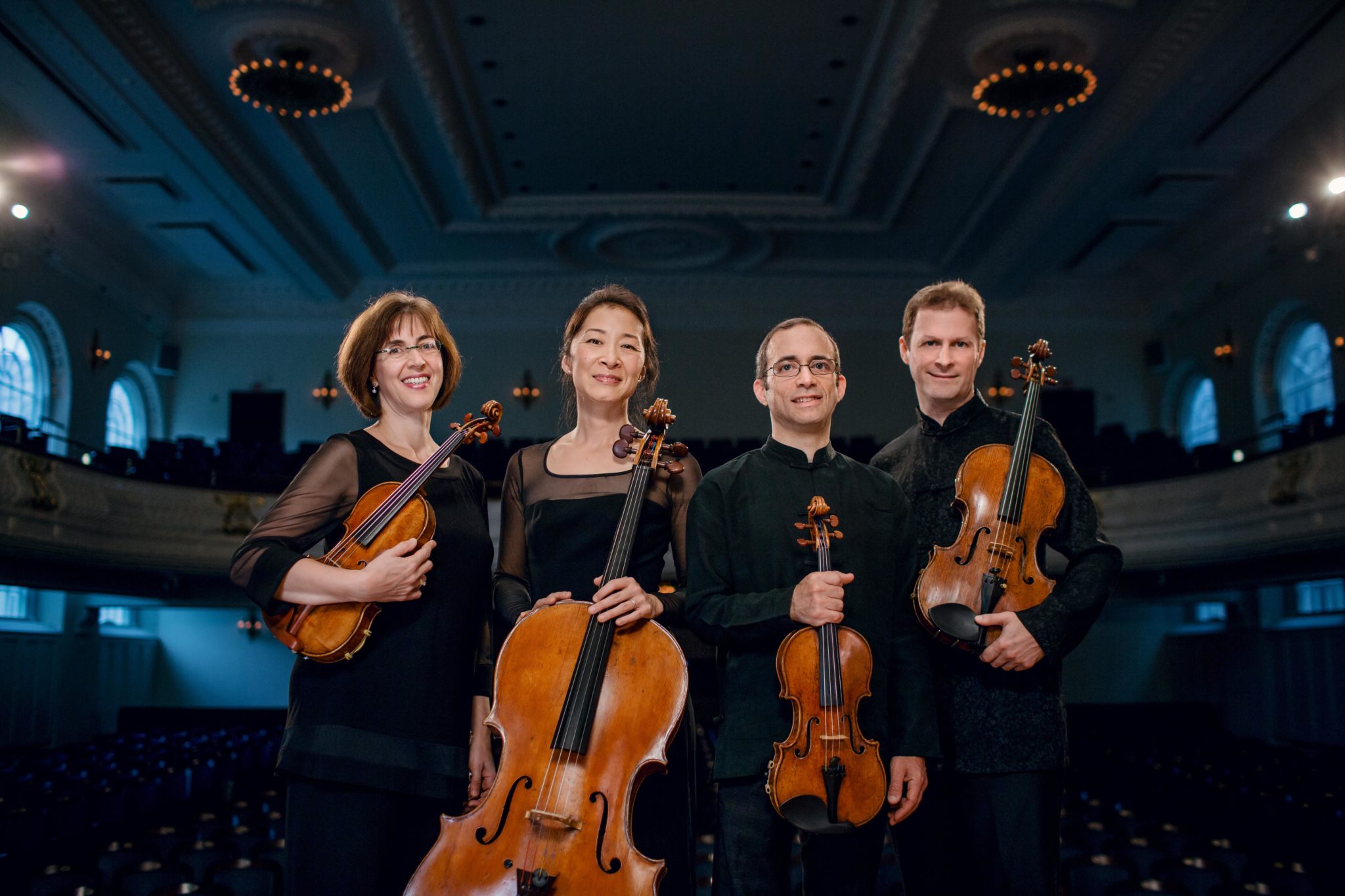
Courtesy of Ian Christmann
Chamber music programming has become banal. Most quartet programs, even in leading concert venues, include one piece each from the Classical and Romantic periods, perhaps along with a 20th century or contemporary quartet for some semblance of originality. These concerts, featuring wonderful but overperformed works by Mozart, Haydn and Beethoven, are meant to appeal to the parochial tastes of aging audiences. Rather than educate, or even enlighten, these (well-intentioned) performances sell tickets, but limit the opportunity to hear works of baroque, modern and less-universally popular Romantic composers.
The Brentano String Quartet, in residence at the Yale School of Music, broke out of the mold of formulaic programming this week with their imaginative and cerebral concert, Lamentations. Taking advantage of an educated and adventurous base of concert-goers at Yale and in New Haven, the group programed an eclectic mix of works spanning almost five hundred years. The concert was tied together by the common theme of grieving and healing through music. First violinist Mark Steinberg writes in his program notes that “there exists an old tradition of professional lamenters, who…digest and transfigure grief in giving it voice…This program in lamentations celebrates that art of cathartic expression…” The Quartet filled the role of professional lamenters through their performances of elegies, madrigals and lamentations by Purcell, Carter and Bartok.
The program also included Shostakovich’s Elegy for String Quartet, based on Katerina’s Aria from the opera Lady Macbeth of Mtensk, in which she sings of her loneliness. “No one will come to me…The days go by in a joyless procession, my life will flash past without a smile. No one, no one will ever come to me…” The Quartet performed wonderfully, portraying a tragic waltz that progresses into a section of frenzied intensity and then leads back to the theme, a mournful soliloquy for the violin.
Less compelling were two Madrigals by the 16th century composer Carlo Gesualdo, arranged by Mark Steinberg and the prolific composer Bruce Adolphe. In an interview published on the Yale School of Music website last week, the Quartet’s violist, Misha Amory, said the “madrigal form is the most literary of music, with every note and turn of phrase intimately connected to and entwined with its text.” To this critic, however, this connection belies the dangers of divorcing the text from its music, which sounded too vague in this arrangement — without lyrics — to obviously be a lamentation. In addition, the performance of these works of early music with Romantic tone and style, on modern instruments, was jarring in an age when specialized concerts of early music on authentic instruments are proliferating. Even with Adolphe’s painstakingly notated ornamentations, the combination of modern quartet and ancient music failed to satisfy.
The Quartet excelled, however, with works inspired by, rather than set to, words. Two selections of Haydn’s “The Seven Last Words of Christ” were on the program, from his sonatas commissioned for the cathedral at Cadiz, Spain. The first movement, “Eli, Eli, ” which is a meditation on “Father, father, why hast thou forsaken me?” was characterized by the performance’s startling intensity. The later movement, “Consumatum Est” or “It is done,” was darker, combining lyrical Haydn-esque sections with a pulsing religiosity. The piece ends on a hopeful note with a major chord, epitomizing Steinberg’s characterization of these pieces as “Music as expression, and music as the beginnings of consolation.”
The second half of the concert consisted of just one piece, Bela Bartok’s second String Quartet. Composed between 1915 and 1917, the work begins with a tranquil first movement, but concludes with a mournful Lento. The quartet excelled here, too, connecting with each other and seeming to hardly glance at their music during moments of intensity and cadence. The movement, which Steinberg calls “the purest and most intimate lament of all” closes with an extended lyrical solo from the cello. Nina Lee performed the section with an exquisite tone and remarkable dynamic range.
After the movement’s conclusion, the audience paused for a few moments, almost a few too many, as if unable to move. At last, we erupted into thunderous applause, grateful for the catharsis brought by our professional lamenters.
Isaiah Schrader | isaiah.schrader@yale.edu .







